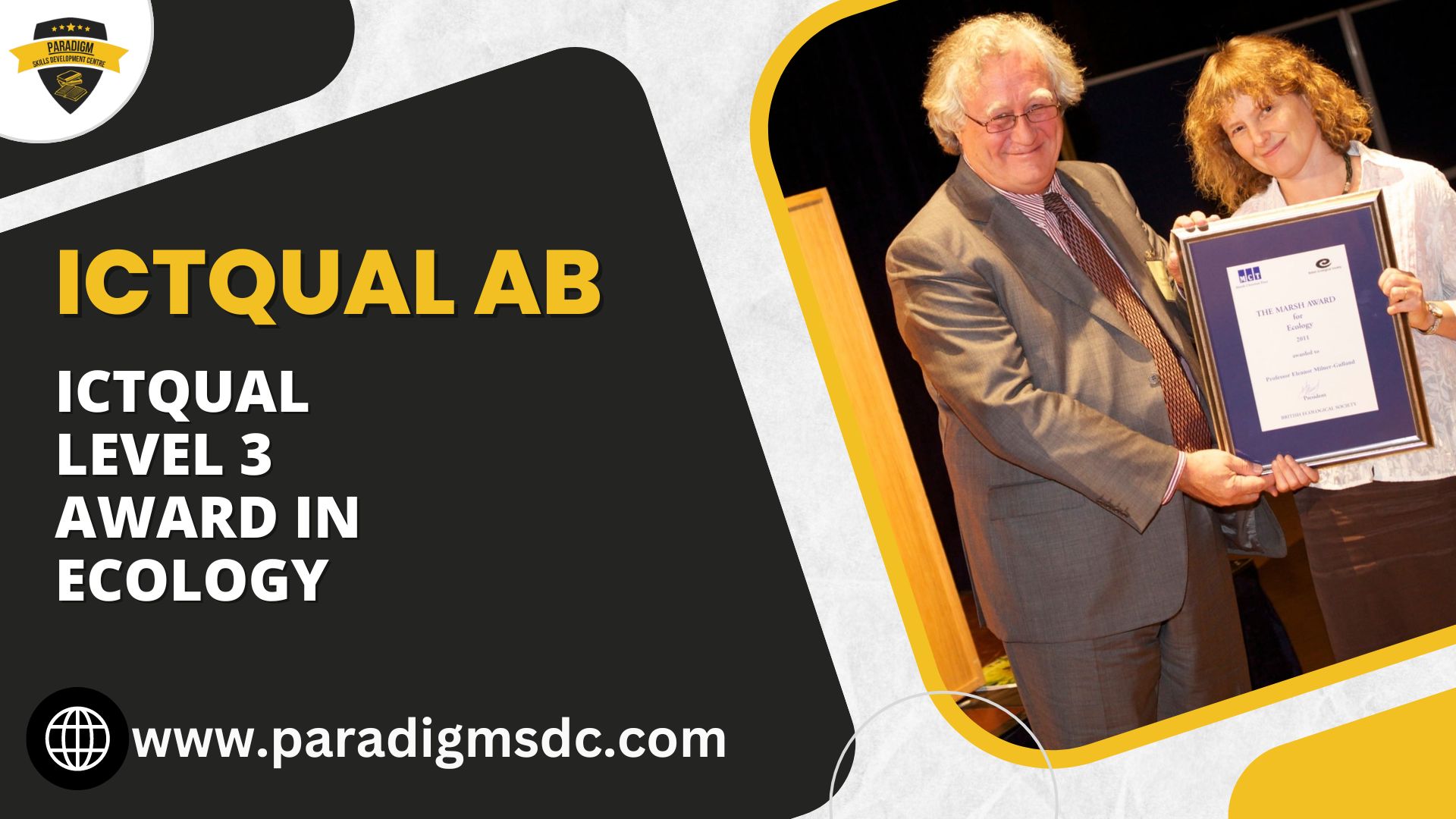Course Introduction
The ICTQual Level 3 Award in Ecology is designed to provide participants with a comprehensive understanding of ecological principles, practices, and their application in various environments. This qualification is ideal for individuals looking to enhance their knowledge and skills in ecological studies, conservation efforts, and environmental management.
Course Overview
This advanced-level course delves into the intricacies of ecological systems, biodiversity, and conservation strategies. Participants will explore the scientific principles behind ecosystem dynamics, habitat management, and the impact of human activities on natural environments.
Course Study Units
The course covers a range of study units including:
- Introduction to Ecology
- Biodiversity and Species Conservation
- Habitat Ecology and Management
- Ecological Surveys and Monitoring
- Community Ecology and Interactions
- Conservation Biology Principles
- Applied Ecology and Human Impacts
- Ecological Research and Data Analysis
- Environmental Policy and Conservation Advocacy
Learning Outcomes
By the end of the course, participants will:
- Introduction to Ecology
- Understand the basic principles of ecology, including ecosystem structure, function, and dynamics.
- Identify different ecological levels of organization, from individual organisms to ecosystems, and comprehend their interactions.
- Biodiversity and Species Conservation
- Recognize the importance of biodiversity and its role in ecosystem stability and resilience.
- Assess threats to biodiversity and apply conservation strategies to protect and restore species diversity.
- Habitat Ecology and Management
- Analyze the characteristics of various habitats and understand their ecological significance.
- Develop habitat management plans to conserve and enhance biodiversity within different ecosystems.
- Ecological Surveys and Monitoring
- Gain proficiency in conducting ecological surveys and monitoring programs to assess ecosystem health and biodiversity.
- Interpret ecological data collected through surveys and monitoring efforts to inform conservation decisions.
- Community Ecology and Interactions
- Explore the dynamics of ecological communities and understand species interactions within them.
- Evaluate the impact of species relationships, such as competition, predation, and mutualism, on community structure and function.
- Conservation Biology Principles
- Understand the principles of conservation biology and the factors contributing to species extinction and endangerment.
- Develop conservation plans and strategies to mitigate threats to biodiversity and promote species recovery.
- Applied Ecology and Human Impacts
- Assess the effects of human activities on ecosystems and biodiversity, including habitat destruction, pollution, and climate change.
- Apply ecological principles to address human-induced environmental challenges and promote sustainable practices.
- Ecological Research and Data Analysis
- Acquire skills in ecological research methods, data collection, and analysis techniques.
- Interpret ecological data effectively and communicate research findings to inform conservation management decisions.
- Environmental Policy and Conservation Advocacy
- Understand environmental policy frameworks and legal instruments related to biodiversity conservation.
- Advocate for conservation initiatives and engage in policy development to promote effective environmental stewardship and conservation action.
These learning outcomes equip participants with the knowledge, skills, and perspectives needed to address contemporary environmental challenges and contribute to the conservation and sustainable management of ecosystems and biodiversity.
Course Benefits
- Enhanced Knowledge: Gain a comprehensive understanding of ecological systems and biodiversity conservation.
- Practical Skills: Develop hands-on skills in fieldwork, data analysis, and environmental impact assessment.
- Career Advancement: Open doors to careers in ecological consultancy, conservation organizations, environmental management, and research.
- Professional Recognition: ICTQual qualifications are recognized globally, enhancing credibility in the field of ecology and environmental sciences.
Who Is This Course For?
The ICTQual Level 3 Award in Ecology is suitable for:
- Environmental professionals seeking to deepen their expertise in ecology.
- Conservationists and ecologists involved in habitat management and biodiversity conservation.
- Graduates and undergraduates in environmental science or related disciplines looking to specialize in ecology.
- Professionals working in environmental consultancy or regulatory bodies.
Future Progression
Successful completion of the Level 3 Award in Ecology can lead to:
- Higher-Level Qualifications: Progression to advanced diplomas or degrees in environmental science, ecology, or conservation biology.
- Career Advancement: Opportunities for senior roles in environmental management, conservation planning, or ecological research.
- Specialized Training: Further training in specific ecological areas such as marine ecology, wildlife management, or restoration ecology.
Conclusion
The ICTQual Level 3 Award in Ecology equips participants with the knowledge, skills, and credentials needed to make meaningful contributions to ecological conservation and environmental sustainability. Whether you are starting your career in ecology or aiming to advance your current position, this course provides a solid foundation for professional growth and impact in the field.







